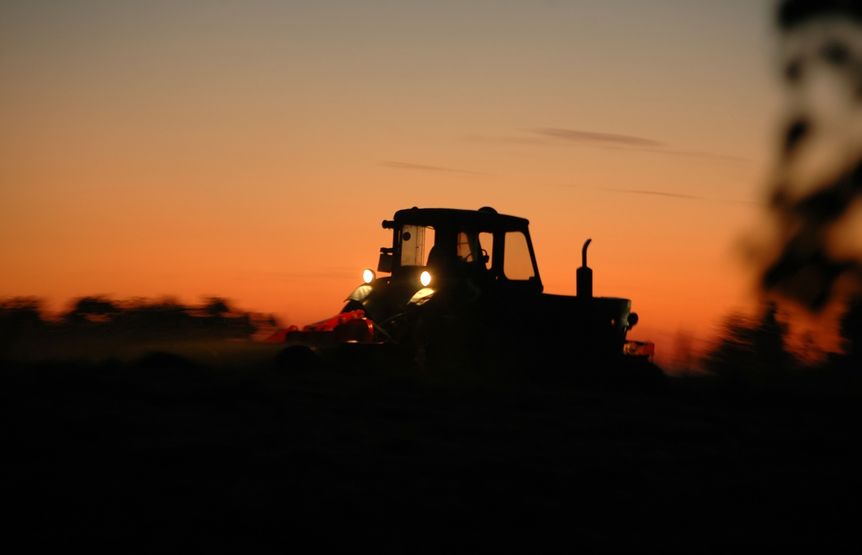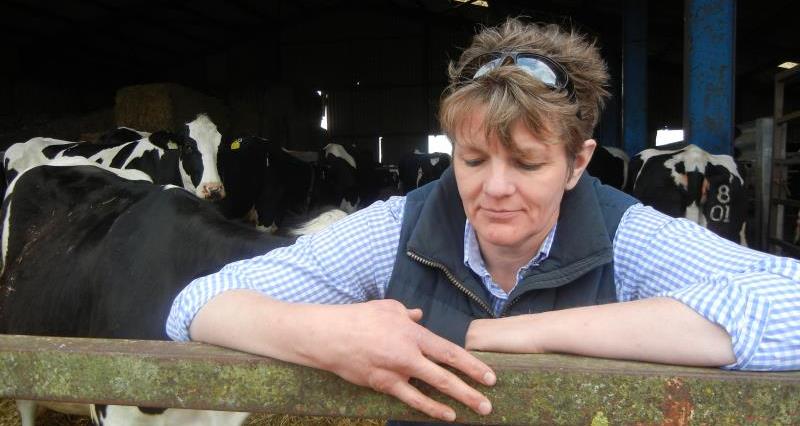
Poorly used or faulty vehicles and machinery are the biggest cause of death and injury on farms.
Farmers come into contact with a host of machinery daily – combines, choppers and hay balers which bring their own attendant dangers.
Hands, hair and clothing can be caught by unguarded PTO shafts or other unguarded moving parts such as pulleys and belts.
People can be injured by front-end loaders, falling from a moving tractor or being struck by its wheels.
According to Martin Malone from the Scotland Farm Safety Partnership: “Machinery and transport continue to be the main causes of life changing and life ending injuries on farms.
“In fact 40 per cent of all farm workers who have lost their lives in agriculture over the past decade were workplace machinery-transport related.
“Whilst this year we have seen an improvement in the numbers of farmers losing their lives as a result of machinery and transport, the fact is that one death is one too many.
“Farm Safety Week is in its fifth year of existence, farm safety training is improving across the country and initiatives like that pioneered by progressive enterprises including Ednie Farms near Peterhead demonstrate that agriculture is an industry who agree that enough is enough and want to make a change.”

'Wake-up call'
Very early on the morning of 12 December 2012, Helen Banham, a dairy farmer from Lincolnshire, was running the bottling plant on the farm when a bottle dropped through the machine.
Instinctively she reached into the machine to grab hold of it, without thinking and without first turning off the bottling line.
The results of her actions were devastating and would have long lasting effects for her, for her family and for the family’s farming business.
Helen’s right hand was caught in the machine; her thumb was severed and a spike penetrated the palm of her hand.
Without thinking she pulled her hand free and in doing so, ripped her hand open, severely and irrevocably damaging the tendons of her third finger.
“It was our wake-up call,” said Helen. “The milk business was taking up so much of our time; we were really up against it: we couldn’t afford to take on any more staff, costs were rising and the prices we could charge just weren’t covering our costs.
“I know I was on auto-pilot, but we were both working full-on, just trying to stay ahead of the game, doing more and more ourselves and pushing ourselves to the limit.”
'Shocked'
Ednie Farms, an extensive farming enterprise consisting of livestock, arable renewables and forestry in Peterhead is run by husband and wife team Peter Robertson and Dr Elaine Booth, who employ two full time employees and others part-time as and when required.
Last year, Peter read about the safety statistics for the industry, with one in particular standing out, and decided to take action.
He explained: “I was looking at the safety statistics for this industry and I was shocked to see that 37 per cent of accidents on Scotland’s farms were caused by people being hurt by vehicles or machinery.
“I know in this area of at least two incidents in recent years where family members have been seriously injured by vehicles.
“I decided that to reduce the risks of that happening on our farms that we needed to take action, and we decided to put in place a hi-vis policy, where anyone, no matter their age or purpose, who comes onto the farm must wear a hi-vis jacket or hi-vis boiler suit.”
Widespread policy
Peter said this policy is widespread in nearly every other manual labour industry, such as the buildings and construction sector, so why should agriculture be any different?
He continued: “We often work in challenging conditions – late into the night, in dark sheds, or at a pace to try and get jobs finished, and any small measures our industry can take to make their farms and crofts safer, is a huge step to reducing the accident and death toll that our industry has such a bad record of.”
Elaine added: “We spoke with our employees and family at the time and talked through the reasons for implementing this policy, and they were fully supportive. And it has proved effective.
“When I went to one of our forestry sites recently, the contractor admitted that he had seen me far in the distance because I was wearing hi-vis, and not just when I was up closer to the machinery.
“He was aware I was nearby and was able to easily keep an eye on where I was as he worked and stop as he saw me approaching.”
In recent years, work-related fatalities in the UK and Ireland’s farming industries have been disproportionate compared to the number of deaths in other industries.
Farm Safety Week
Monday: 'Pub Landlord' Al Murray helped rescue a trapped farm worker
